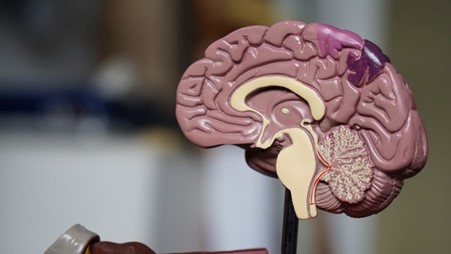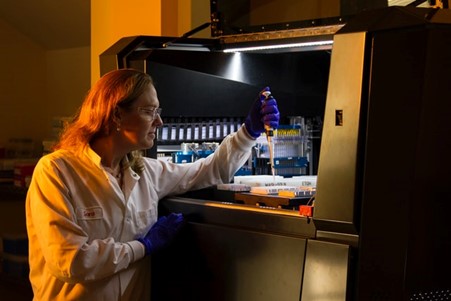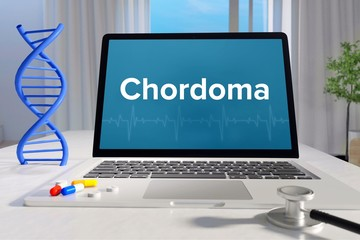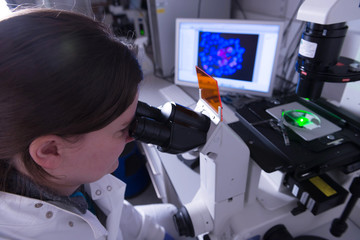According to the National Cancer Institute, an estimated 100,000 people will be diagnosed with a brain tumor in 2022 and because of the improbable survival rates, associated with malignant brain tumors, doctors are working hard to apply their understanding of molecular pathology to fight and overcome brain cancer.
Molecular pathology is a highly specialized form of medicine that could provide answers to diagnostic, classification, and treatment problems with pediatric and adult neuro-oncology. In this quick post, Dr. David Zagzag explores the topic and uncovers how medical science is working to provide better treatment plans and outcomes for cancer patients. Dr. Zagzag is a strong advocate for the inclusion of molecular pathology analysis toward an integrated classification of pediatric and adult brain tumors allowing enhanced diagnosis, better targeted therapies and management of patients.

What Is Molecular Pathology and How Does it Affect Brain Cancer Treatments?
Molecular pathology refers to the identification of changes in the function of genes and proteins that underlie disease development and progression. In pediatric and adult neuro-oncology, molecular pathology has been used to identify alterations in genes that are associated with tumorigenesis, to understand the mechanisms of tumor progression, and to develop targeted therapies.
How is Molecular Pathology Used to Diagnose and Classify Brain Tumors?
In some cases, molecular testing may be the only way to accurately diagnose a tumor. For example, molecular testing can be used to distinguish between different types of brain tumors, such as oligodendrogliomas and astrocytomas.
Molecular testing can also be used to help determine whether a tumor is low grade, high grade, benign or malignant. In addition, molecular testing can be used to identify mutations that are associated with patient outcome. For example, the IDH1 mutation is associated with a more indolent form of glioma and is also often associated with a better prognosis and improved survival.
In contrast, a mutation of histone (a protein attached to DNA) known as H3K27M is usually recognized in very aggressive primary brain tumors.

How is Molecular Pathology Used to Develop Targeted Therapies?
Molecular pathology can also be used to develop targeted therapies. Targeted therapies are designed, for example, to specifically target the abnormal proteins or genes involved in cancer cell growth or used to treat brain tumors that are resistant to standard chemotherapy and radiation therapy.
Treatment with dabrafenib and trametinib can yield encouraging rate of durable responses in both high-grade and low-grade brain tumors carrying a mutation known as BRAF V600E mutation. Patients are selected for these treatments because their tumors carried this specific genetic mutation. Dabrafenib blocks the activity of the mutated version of the BRAF molecule and Trametinib blocks the activity of an enzyme molecule called MEK.
In other tumor types, a gene mutation can lead to increased activation of a pathway known as mTOR. Everolimus also known by its brand name Afinitor, is a second-generation rapamycin (sirolimus), derivative and works similarly to Rapamycin as an mTOR inhibitor. Everolimus has been approved in the United States by the Food and Drug Administration and has prompted the initiation of several clinical trials that aim to block the progression of tumors characterized by the mTOR hyperactivation. Several reports show a positive impact observed in association with this treatment and the arrested progression of the disease.
What Are the Limitations of Molecular Pathology?
Molecular pathology is a rapidly evolving field of medicine. As such, there are some limitations to the use of molecular pathology in the diagnosis and treatment of brain tumors. First, not all brain tumors can be accurately diagnosed or classified using molecular testing.
Additionally, not all brain tumors are responsive to targeted therapies and the use of molecular testing is often associated with a higher cost than traditional treatments. Nevertheless, it’s shown quite a lot of promise and could revolutionize pediatric and adult neuro-oncology.
The Bottom Line
Molecular pathology plays an important role in pediatric and adult neuro-oncology. As medical technology becomes more advanced and treatment plans shift away from standard treatments, molecular pathology will play a greater role in how brain tumors are diagnosed and treated.
Disclaimer: Always consult with a qualified and licensed physician. The content and information on this website is not intended to be a substitute or to replace professional medical advice for accurate diagnosis or appropriate treatment. Readers are encouraged to confirm the information contained herein with other sources, not to rely on this website for emergency medical treatment and to carefully review the information provided with their professional health care provider. In short this website is not an attempt to or should not be used to make a diagnosis, to replace or to overrule a qualified health care provider’s judgment.


